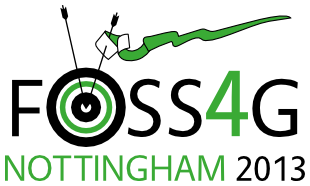Presentation
Introduction To GeoGit: Distributed Versioned Editing For Geospatial Features
Scott Clark (LMN Solutions, LLC) with Chris Holmes
11:00 on Saturday 21st September (in Session 55, starting at 11 a.m., Auditorium)
Show in Timetable
As a reflection of our increasingly connected world, many endeavors involve multiple organizations with a need to share their unique perspectives and expertise. These endeavors also seek to benefit from the wider awareness of internal and external viewpoints. It is widely acknowledged that local knowledge should inform operational decisions, but organizations are still wrestling with how to treat volunteered information versus “authoritative” information. GeoGit is designed to allow for multiple individuals to contribute to geospatial feature data while providing distributed versioning. With this capability we can move into a paradigm that allows for distributed collaboration on geographic data development and management. GeoGit will provide the ability to maintain a history of the changes to geospatial vector data, track who provided the changes, and store comments on the reasons for the changes. GeoGit provides the ability to track and maintain the provenance of the data in a distributed and sometimes connected environment. By combining GeoGit with user-focused applications and portals, we can do this in such a way that the provenance of the data is maintained throughout the process. This talk is targeted at managers, developers, and anyone else wanting an introduction to GeoGit and how it can be used to support collaborative workflows between organizations and individuals. We’ll cover: * The challenges GeoGit addresses * What GeoGit does * How GeoGit enables workflows allowing collaboration around creating and editing of geospatial data * Short demonstration of GeoGit in action using a web client * How mobile apps complement data collection efforts * The GeoGit roadmap
